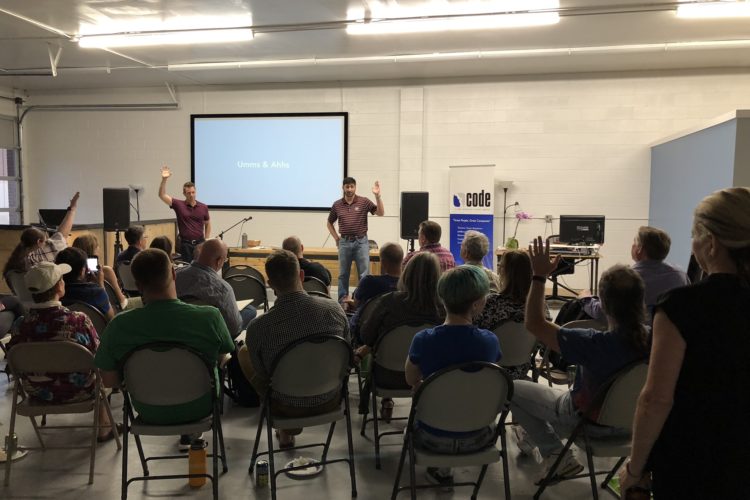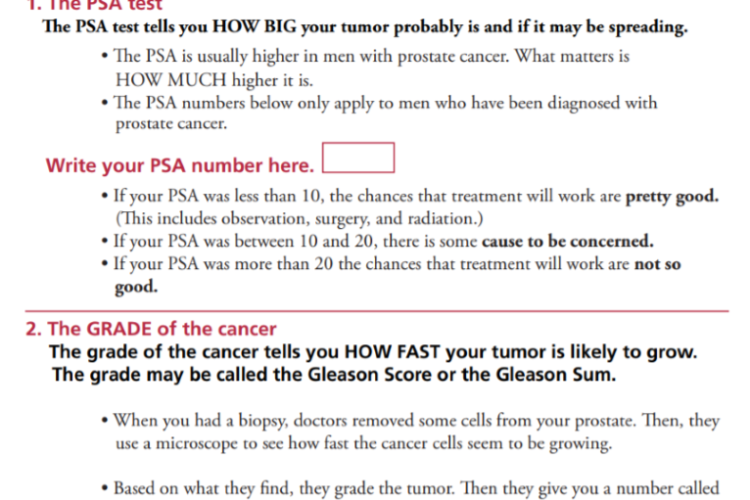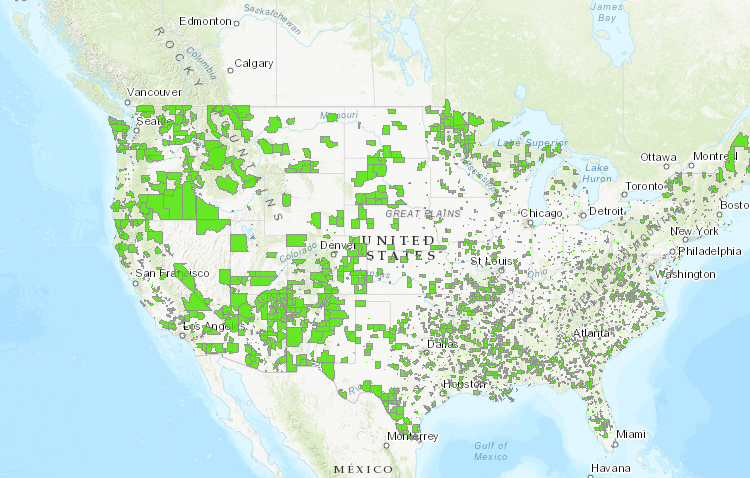To cut through AI complexity, focus on decisions. Never has it been more important to effectively explain complex concepts. Technology is influencing most decision processes, not always transparently so. On the bumpy road toward explainable AI (XAI), we find great communication options, from printed materials to state-of-the-art experiences. But where do you start, or know […]
As data complexity grows, so does the importance of explaining. The philosophy of science can teach us about the role of explaining in high-quality, evidence-based decisions. It’s not just navel-gazing: An explanation is a statement that makes something clear, or a reason or justification given for an action or belief. It describes “a set of […]
Present everything better! As co-organizer of the meetups Papers We Love – Denver and Domain-Driven Design – Denver, I was delighted to co-host PitchLab for a talk on presentation skills. Jay Mays and Keefer Caid-Loos did an excellent job explaining how to connect with your audience. Participants were engaged, and appreciated PitchLab’s approachable, ask-me-anything attitude. The […]
How we decide is no less important than the data we use to decide. People are recognizing this and creating innovative ways to blend what, why, and how into decision processes. 1. Apply behavioral science → Less cognitive bias McKinsey experts offer excellent insight into Behavioral science in business: Nudging, debiasing, and managing the irrational […]
1. Prior experience → More trust In Trustworthy Data Analysis, Roger Peng gives an elegant description of how he evaluates analytics presentations, and what factors influence his trust level. First, he imagines analytical work in three buckets: A (the material presented), B (work done but not presented), and C (analytical work not done). “We can […]
1. Vigilance → Better algorithms “Eliminating bias… requires constant vigilance on the part of not only data scientists but up and down the corporate ranks.” In an insightful Information Week commentary, James Kobielus (@jameskobielus) considers the importance of Debiasing Our Statistical Algorithms Down to Their Roots. “Rest assured that AI, machine learning, and other statistical […]
Suppose you’ve gotten a cancer diagnosis. Would your business experience help you navigate the care pathway? Larry Neal describes how he applied his Decision Analysis skills to prostate treatment in Eight Lessons from a Decision Professional’s Cancer Decision. When a physician said Neal had a 30% chance of having cancer, but his analysis suggested 95-99%, […]
1. Debiasing → Better decisions Debiasing is hard work, requiring honest communication and occasional stomach upset. But it gets easier and can become a habit, especially if people have a systematic way of checking their decisions for bias. In this podcast and interview transcript, Nobel-winning Richard Thaler explains several practical ways to debias decisions. First, […]
1. Biased instructor response → Students shut out Definitely not awesome. Stanford’s Center for Education Policy Analysis reports Bias in Online Classes: Evidence from a Field Experiment. “We find that instructors are 94% more likely to respond to forum posts by white male students. In contrast, we do not find general evidence of biases in […]
1. Biased analysis → Misunderstood cause-effect In Biased Ways We Look at Poverty, Adam Ozimek reviews new evidence suggesting that food deserts aren’t the problem, behavior is. His Modeled Behavior (Forbes) piece asks why the food desert theory got so much play, claiming “I would argue it reflects liberal bias when it comes to understanding […]








